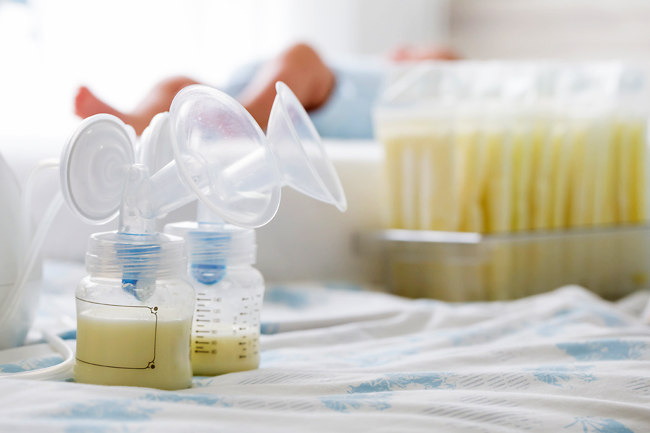Breastfeeding, recognised as the gold standard in infant nutrition, offers extensive benefits. It not only supports optimal growth and immunity in babies but also fosters a deep bond between mother and child.
Beyond immediate nourishment, breastfeeding aids in the mother’s recovery and overall well-being, providing essential nutrients and promoting emotional connection for a strong start in life.
GLOBAL SUPPORT
World Breastfeeding Week, observed in the first week of August each year (August 1 to August 7), enjoys widespread support from the World Health Organization (WHO), UNICEF, numerous Ministries of Health, and various civil society partners.
Despite being one of the most effective methods to ensure child health and survival, current statistics reveal that fewer than half of infants under six months are exclusively breastfed. Recognising its vital role, the World Health Assembly endorsed World Breastfeeding Week in 2018 as a key health promotion strategy. Each year, the week adopts a new theme aimed at fostering environments that support breastfeeding.
This includes advocating for community and workplace support, ensuring adequate protections through government policies and laws, and disseminating information on the numerous benefits and effective practices of breastfeeding.




2024 THEME
The theme for World Breastfeeding Week 2024 is ‘Closing the Gap: Breastfeeding Support for All’. This year’s focus is on truly recognising and valuing breastfeeding mothers by amplifying their voices and experiences.
It aims to underscore the critical need for comprehensive support at multiple levels to ensure successful breastfeeding practices.
The campaign highlights several key areas of support essential for breastfeeding success such as advocating for policies and societal attitudes that truly value women and their breastfeeding journeys; promoting a healthcare system that is friendly and supportive towards breastfeeding mothers; ensuring respect for a woman’s autonomy and her right to breastfeed whenever and wherever she chooses; and encouraging solidarity and community support to create an environment conducive to breastfeeding. To make a meaningful impact, there are actions that everyone can take to support breastfeeding mothers, helping them to continue for as long as they wish. Through these initiatives, World Breastfeeding Week aims to foster a more inclusive and supportive environment for breastfeeding mothers, ensuring they receive the recognition and assistance they deserve.
SHARED RESPONSIBILITY FOR SUPPORT
In a shared statement made by the UNICEF Executive Director Catherine Russell and WHO Director-General Tedros Adhanom Ghebreyesus, they highlighted that the global rate of exclusive breastfeeding for infants under six months has risen by more than 10 per cent, reaching 48 per cent, over the past 12 years, signifying that hundreds of thousands of babies are now benefiting from this vital aspect of early life.
Despite this progress, which moves us closer to the WHO’s goal of 50 per cent by 2025, there are still significant challenges that need to be addressed.
Ensuring that mothers receive the necessary support to breastfeed can have widespread benefits.
Improved breastfeeding rates have the potential to save over 820,000 children’s lives annually, according to the latest data.
“During this critical period of early growth and development, the antibodies in breastmilk protect babies against illness and death. This is especially important during emergencies, when breastfeeding guarantees a safe, nutritious, and accessible food source for infants and young children.
“Breastfeeding reduces the burden of childhood illness, and the risk of certain types of cancers and non-communicable diseases for mothers,” they added.
“When breastfeeding is protected and supported, women are more than twice as likely to breastfeed their infants. This is a shared responsibility. Families, communities, healthcare workers, policymakers, and other decision-makers all play a central role.”
VITAL ROLE OF OPTIMAL NUTRITION
Undernutrition remains a significant concern, contributing to an estimated 2.7 million child deaths each year – 45 per cent of all child fatalities. Proper infant and young child feeding is crucial for improving child survival and ensuring healthy growth and development.
The first two years of life are particularly critical, as optimal nutrition during this period not only reduces morbidity and mortality but also mitigates the risk of chronic diseases and promotes overall development.
As said earlier by the UNICEF Executive Director and WHO Director-General, breastfeeding holds the potential to save over 820,000 children under the age of five annually.
According to WHO and UNICEF, key practices for optimal breastfeeding include initiating breastfeeding within the first hour of birth, exclusively breastfeeding for the first six months, and introducing safe, nutritionally adequate complementary foods at six months while continuing breastfeeding for up to two years or beyond.
Despite these recommendations, less than 44 per cent of infants aged zero to six months worldwide were exclusively breastfed from 2015 to 2020.
Exclusive breastfeeding for six months protects against gastrointestinal infections and contributes essential energy and nutrients to children aged six to 23 months.
It also plays a role in reducing the risk of childhood obesity, enhances cognitive development, and can lead to higher incomes in adulthood.
For mothers, longer breastfeeding durations lower the risk of ovarian and breast cancer and aid in spacing pregnancies.
From around six months, infants require additional foods to meet their growing nutritional needs. Complementary feeding should be introduced with small, nutrient-rich foods and adjusted as the child grows.
Special attention is needed for families facing difficult circumstances, where breastfeeding remains the preferred feeding method, including for low-birth-weight or premature infants, and those in complex emergencies.
UNICEF and WHO created the Global Breastfeeding Collective to secure broad support for breastfeeding across political, legal, and public sectors.
This initiative brings together governments, philanthropies, international organisations, and civil society to provide comprehensive backing for mothers.
Additionally, WHO’s NetCode aims to protect breastfeeding by regulating breastmilk substitute marketing and ensuring compliance with guidelines. WHO and UNICEF also offer training for health professionals to support breastfeeding mothers, addressing challenges, monitoring growth, and identifying early signs of undernutrition or obesity.
Reliable data collection is vital for addressing healthcare inequalities and ensuring effective breastfeeding support.
Currently, only half of countries track breastfeeding rates. Collecting data on supportive policies, such as family-friendly employment and marketing regulations, is essential for improving and funding breastfeeding initiatives.
As Brunei continues to develop and modernise its legal system, the Law Society’s role in regulating professional conduct will remain vital.
Through rigorous and transparent disciplinary processes, the society fosters a culture of accountability and excellence, ensuring that justice is administered with the highest standards of integrity. – Izah Azahari






